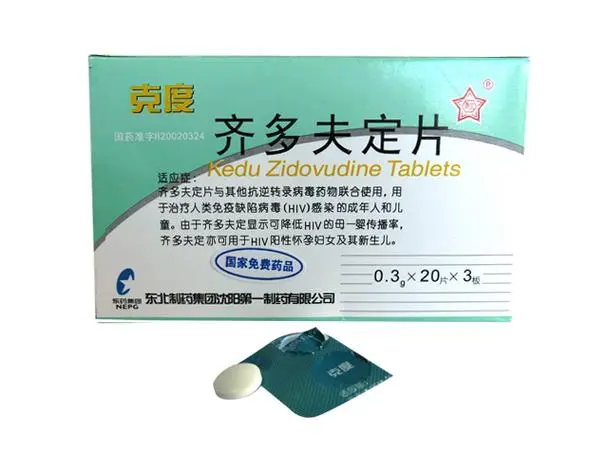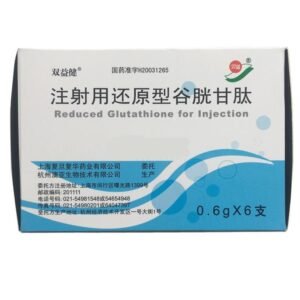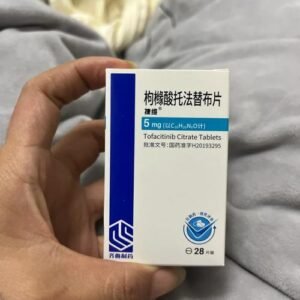Zidovudine Tablets.
Effects and efficacy:
Used to treat AIDS acquired immunodeficiency syndrome (AIDS) to delay the progression of the disease. Patients with complications (Pneumocystis carinii or other infections) still need to be treated with other symptomatic drugs.
Usage and dosage:
Adult dosage oral: The recommended dosage of this product in combination with other anti-retroviral drugs is 500~600mg per day, divided into 2~3 doses. Dosage for prevention of mother-to-child transmission: 500mg per day (100mg each time, 5 times a day) until the beginning of delivery. Newborns: Zidovudine oral solution should be given at a dose of 2mg/kg. Take the medicine once every 6 hours. Start taking the medicine within 12 hours after birth and continue to take it for 6 weeks. Infants who cannot take it orally should be given zidovudine 1.5mg/kg intravenously, once every 6 hours, and each administration time is greater than 30 minutes. Dosage for patients with adverse reactions of the blood system: For patients whose hemoglobin level drops to 7.5g/dL (4.65mmol/L) ~ 9g/dL (5.59mmol/L) or whose neutrophil count drops to 0.75×10~1.0×10/L, the dosage of zidovudine should be reduced or zidovudine treatment should be discontinued. Dosage for patients with impaired renal function: 300~400mg per day is an appropriate dose for patients with advanced renal failure. For patients with advanced renal disease undergoing hemodialysis and peritoneal dialysis, the recommended dose is 100mg every 6~8 hours. Dosage for patients with impaired liver function: Patients with impaired liver function must undergo dose adjustment. There is currently no ideal recommended regimen, and specific circumstances require consultation with a doctor.
Adverse reactions:
Adults: The most serious adverse reactions include anemia (blood transfusion if necessary), neutropenia, and leukopenia. The above adverse reactions are more likely to occur when high doses are used (1200~1500mg/day) or in patients with advanced HIV (especially patients with low bone marrow reserves before treatment), especially those with CD4 cell counts below 100/mm. Reduce the dosage or stop treatment if necessary (refer to dosage and administration). Common other adverse reactions include nausea, anorexia, abdominal pain, headache, rash, low fever, myalgia, paresthesia, insomnia, weakness, and indigestion. Among them, nausea is the most common adverse reaction to the use of zidovudine, and the incidence of other adverse reactions reported is not all higher than that of analgesia. Children: As with adults, the most serious adverse reactions include anemia (blood transfusion if necessary), neutropenia and leukopenia. Adjust the dose if necessary (refer to dosage and administration). The adverse reactions of this product in children are similar to those in adults. Adverse reactions of combined use: The safety data of this product in combination with HIVID is limited, and physicians should fully understand the nature of HIVID and related adverse reactions.
Drug contraindications:
Allergic to this product is prohibited and liver function damage should be used with caution
Share:
Products
Our offers
Health Classification
Let us work together to protect precious health




























